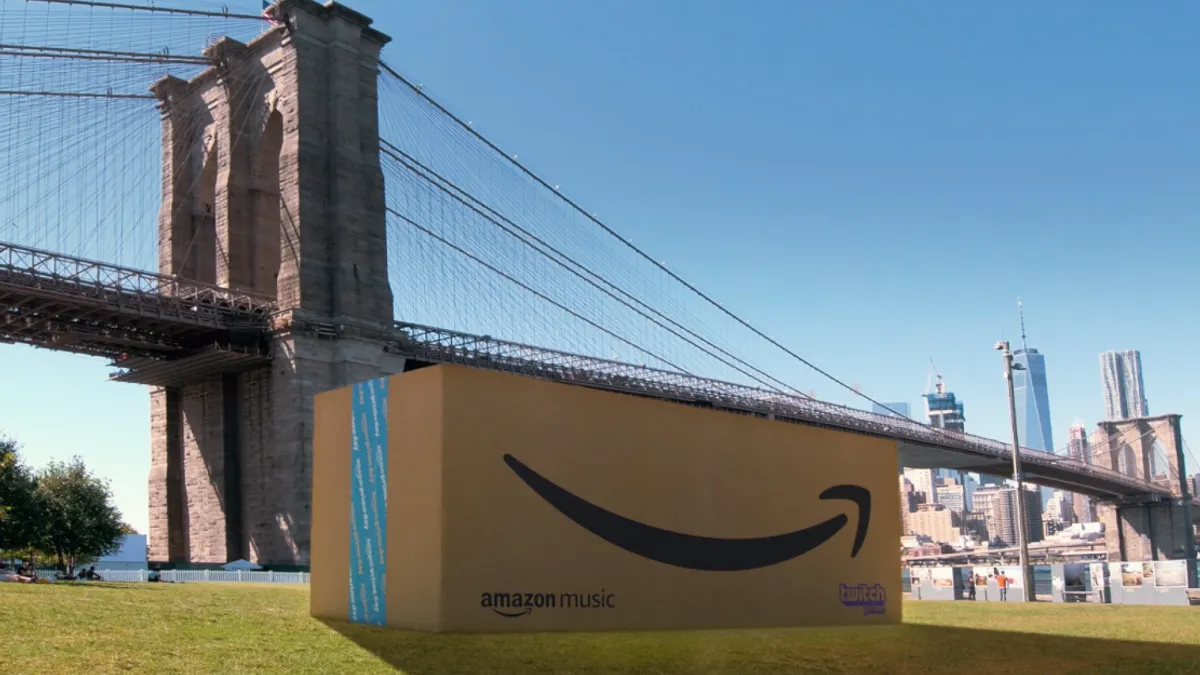Dive Brief:
- Amazon's sales teams have been more frequently working directly with brands and CMOs and not involving agencies as part of the process, Digiday reported citing unnamed sources familiar with the matter. The strategy of sidestepping agencies in favor of direct brand relationships is part of Amazon's efforts to score bigger ad buys as its advertising business, estimated to now be roughly $2 billion, ramps up. Amazon told Digiday that agencies are still a vital part its ad business, however.
- Marketers are welcoming the more direct approach, according to Digiday, as it allows them to delve deeper into analytics and holistically discuss other elements in the Amazon ecosystem, like stores, shipping, logistics and review management, as well as advertising. One area of concern is Amazon's dual role as an e-commerce site and ad platform, with some brands worrying that their spend will support Amazon's emerging private-label segment and inadvertently fund competitors, according to Digiday.
- HP is one marketer that's been working more directly with Amazon to raise consumer awareness about its brand. The company relies on Amazon for lower funnel activities, sponsored products, headline search ads, product display ads and reviews, HP's global head of media Dan Salzman told Digiday. The toymaker Lego also uses Amazon for search, and has an Amazon store and dedicated landing page on the site.
Dive Insight:
Marketers have for years been looking for a genuine competitive threat to the digital advertising duopoly of Facebook and Google, with Amazon increasingly being the most likely third player in that conversation. However, the Digiday report shows how hopes that Amazon will in some way bolster agencies' business might be dashed if the e-commerce company continues to work directly with brands, which could be a heavy blow to an already struggling industry.
For agencies, the ability to specialize in Amazon-related advertising and services could be incredibly lucrative — Amazon's ad revenue has grown 132% year-over-year, according to Digiday — but could also be relatively moot if brands handle those same services in-house or through Amazon. Amazon's strategy of bypassing agencies underpins the ongoing struggle these businesses face in a quickly shifting digital landscape.
A number of major brands are reviewing their current agency arrangements as they seek to cut spending and streamline operations. More marketers also think agencies struggle with new technology and can't provide adequate metrics for measuring campaign effectiveness, according to research from the World Federation of Advertisers.
As marketing becomes more data-driven, Amazon is only becoming a more attractive platform for marketers. The company has a wealth of data on consumers' shopping and product search behaviors, which marketers can use to target and personalize their campaigns. Even though Amazon’s ad business remains small compared to Facebook and Google, it's expected to continue to see explosive growth. EMarketer predicts Amazon will hit $3.19 billion in total U.S. digital ad revenue by 2019.












